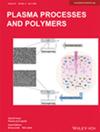数据驱动的等离子体科学:通过机器学习实现建模、诊断和应用的新视角
IF 2.9
3区 物理与天体物理
Q2 PHYSICS, APPLIED
引用次数: 0
摘要
本文全面探讨了机器学习(ML)与常压等离子体的结合,强调了其在建模、诊断和应用等领域的变革性影响。本文深入探讨了神经网络和深度学习模型在模拟复杂等离子体动力学、提高预测精度和降低计算需求方面的应用。我们还研究了 ML 在等离子体诊断中的应用,包括实时数据分析和流程优化,展示了在监测和控制等离子体系统方面的进步。文章讨论了集成过程中遇到的挑战,如数据质量、计算资源和模型可解释性。最后,我们概述了未来的发展方向,强调了人工智能在革新等离子体研究、提高运行效率和开辟等离子体技术新途径方面的潜力。本文章由计算机程序翻译,如有差异,请以英文原文为准。
Data‐driven plasma science: A new perspective on modeling, diagnostics, and applications through machine learning
This paper comprehensively explores the integration of machine learning (ML) with atmospheric pressure plasma, highlighting its transformative impact in areas, such as modeling, diagnostics, and applications. The paper delves into the application of neural networks and deep learning models in simulating complex plasma dynamics, enhancing prediction accuracy, and reducing computational demands. We also examine the application of ML in plasma diagnostics, including real‐time data analysis and process optimization, demonstrating advancements in monitoring and controlling plasma systems. The article discusses the challenges encountered in this integration process, such as data quality, computational resources, and model interpretability. Finally, we outline future development directions, emphasizing the potential of ML in revolutionizing plasma research, improving operational efficiency, and opening new avenues in plasma technology.
求助全文
通过发布文献求助,成功后即可免费获取论文全文。
去求助
来源期刊

Plasma Processes and Polymers
物理-高分子科学
CiteScore
6.60
自引率
11.40%
发文量
150
审稿时长
3 months
期刊介绍:
Plasma Processes & Polymers focuses on the interdisciplinary field of low temperature plasma science, covering both experimental and theoretical aspects of fundamental and applied research in materials science, physics, chemistry and engineering in the area of plasma sources and plasma-based treatments.
 求助内容:
求助内容: 应助结果提醒方式:
应助结果提醒方式:


